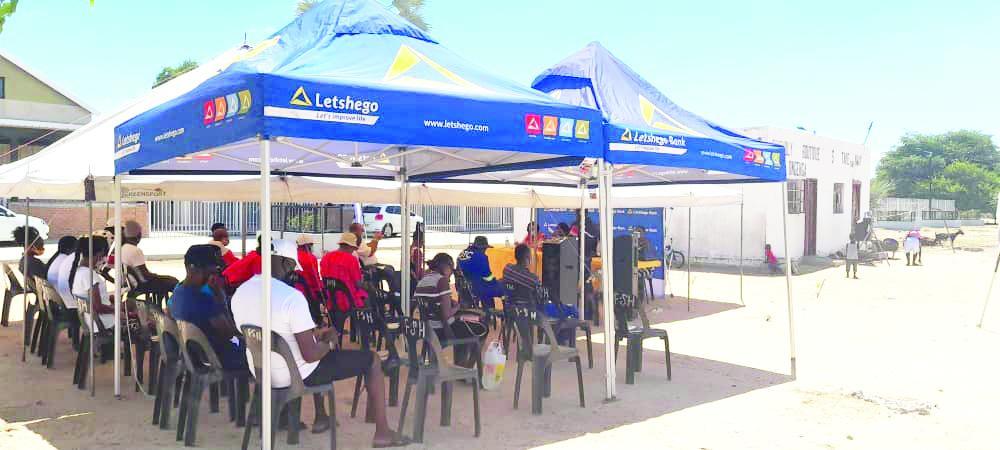Africa-Press – Namibia.
Half of the Namibian population, largely public servants – teachers, nurses – is crippled by debt and parents are forced to borrow, not to invest but to eat and survive.
Popular Democratic Movement parliamentarian Inna Hengari raised the concern in parliament this week, highlighting the financial hardship and unsustainable debt levels citizens endure.
She said this is not a result of economic activity but the by-product of a financial system structurally tilted against the vulnerable.
“While our people languish in economic distress, financial institutions flourish. Letshego, for instance, reported profits of N$199 million in just six months in 2024. This is not a badge of honour; it is an indictment,” she said. In retrospect, Letshego Namibia had more than 64 928 customers in 2024 and made a profit of N$418 million, a 19% growth from the previous year. Financially, the institution is booming. Hengari pointed out that Namibia’s commercial and microfinance banking system has failed the country’s citizens by increasingly detaching from the developmental needs of the people.
She said formal lenders impose prohibitive rates and that informal lenders operate with impunity, some charging more than 50% interest, preying on fear and scarcity.
The victims, she alluded, are young, underpaid Namibians.
BON
On the same day, the Parliamentary Committee on Economy and Industry, Public Administration and Planning engaged Bank of Namibia governor Johannes !Gawaxab for the first time.
The committee urged !Gawaxab to appear at least once a year to report to the committee on BoN’s monetary policy operations, the state of the economy and other relevant affairs.
In engagement, !Gawaxab told the committee that the bank has put in place necessary measures to support financial stability.
“BoN has concluded the impact assessment on fees and charges, and this assessment will soon be shared with the Ministry of Finance to finalise the regulations on the same in line with Section 107 of the Banking Institutions Act of 2023, aimed at curbing the high cost of banking services,” he said.
The BoN recently launched the Instant Payment Solution, a project aimed to broaden financial inclusion by providing essential and affordable financial services to rural and informal sectors.
These sectors face logistical and financial challenges in accessing conventional banking services.
Proposal
Hengari proposed the amendment of the Banking Institutions Act to cap interest rates within reasonable and humane thresholds.
Draft regulations on fees and charges, already finalised and consulted upon, must be enforced with real consequences, she insisted.
She also requested BoN to expand its regulatory jurisdiction to include informal lenders, digital loan apps, and microfinance operators. Additionally, Hengari called for an establishment of a debt relief programme targeted specifically at civil servants and low-income households.
This could be capitalised using the Welwitschia Fund, she said. The fund she indicated has grown to US$24.263 million (approximately N$430 million) with a 10.4% return. Hengari is adamant about the expansion of the Welwitschia Fund’s mandate to also include a social investment portfolio.
A portfolio that will support micro-enterprises, youth-led ventures, and renewable energy cooperatives that offer employment and innovation outside of the formal credit system.
She said the BoN Instant Payment Solution initiative must be used to empower rural communities, demystify credit, and break the generational cycle of debt dependency.
Letshego
Letshego states that the majority of its customer base consists of civil servants who borrow for a variety of reasons.
The bank added that 55% of approved loans are dedicated to productive lending.
Letshego spokesperson Ongame Mutorwa said these include lending to initiatives around education, home improvement, micro and small enterprise development, and agricultural activities. “These are not consumption loans, but investments that improve livelihoods and contribute to household resilience,” she said.
The institution states it provides debt consolidation solutions, to enable customers to combine multiple debts into single, manageable repayment plans to ease monthly financial pressure.
“For many of our clients, this has also created the financial flexibility needed to pursue long-term goals such as investing in homeownership. We are committed to promoting responsible borrowing and empowering customers with the tools they need to manage their finances effectively,” she added.
The institution reported hosting financial literacy initiatives through public sessions at the Ongwediva Annual Trade Fair last year, engaging more than 100 members of the public. In the same year, more than 600 teachers in Khomas were given financial literacy training, as well as 200 participants from the health sector from across Namibia. Letshego, among others, operates under the supervision and regulation of the Namibia Financial Institutions Supervisory Authority and BoN.
“We adhere strictly to all compliance requirements, including affordability assessments, client disclosures, and consumer protection protocols. Our approach is rooted in sustainable financial practices. Letshego provides critical financial services that many Namibians would otherwise not be able to access through conventional banks,” she added.
For More News And Analysis About Namibia Follow Africa-Press






